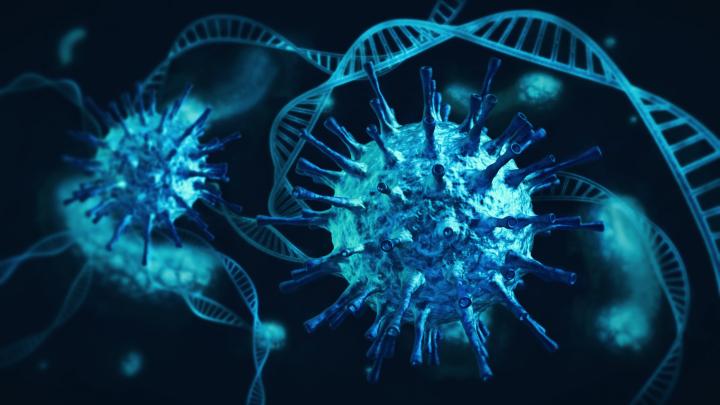Genes could be key to new Covid-19 treatments
Potential treatments for Covid-19 have been identified after the discovery of five genes associated with the most severe form of the disease.

Genetic evidence is second only to clinical trials as a way to tell which treatments will be effective in a disease. Existing drugs that target the actions of the genes reveal which drugs should be repurposed to treat Covid-19 in clinical trials, experts say.
Genes involved in two molecular processes - antiviral immunity and lung inflammation - were pinpointed. The breakthrough will help doctors understand how Covid-19 damages lungs at a molecular level.
Researchers from the University of Edinburgh made the discovery by studying the DNA of 2,700 patients in 208 intensive care units (ICUs) in the UK.
Comparing samples
Researchers from the GenOMICC consortium – a global collaboration to study genetics in critical illness – compared the genetic information of Covid-19 patients in ICU with samples provided by healthy volunteers from other studies, such as UK Biobank, Generation Scotland and 100,000 Genomes.
The team found key differences in five genes of the ICU patients compared with samples provided by healthy volunteers. The genes - IFNAR2, TYK2, OAS1, DPP9 and CCR2 – partially explain why some people become desperately sick with Covid-19, while others are not affected.
Target genes
Having highlighted the genes, the team were then able to predict the effect of drug treatments on patients, because some genetic variants respond in a similar way to particular drugs.
For example, they showed that a reduction in the activity of the TYK2 gene protects against Covid-19. A class of anti-inflammatory drugs called JAK inhibitors, which includes the drug baricitinib, produces this effect.
They also discovered that a boost in the activity of the gene INFAR2 is also likely to create protection, because it is likely to mimic the effect of treatment with interferon - proteins released by cells of the immune system to defend against viruses. However, experts caution that to be effective, patients might need the treatment early in disease.
Based on the findings published in Nature, the researchers say that clinical trials should focus on drugs that target these specific antiviral and anti-inflammatory pathways.
This is a stunning realisation of the promise of human genetics to help understand critical illness. Just like in sepsis and influenza, in Covid-19, damage to the lungs is caused by our own immune system, rather than the virus itself. Our genetic results provide a roadmap through the complexity of immune signals, showing the route to key drug targets.
Genetic factors
GenOMICC (Genetics of Susceptibility and Mortality in Critical Care) started in 2015 as an open, global consortium of intensive care clinicians dedicated to understanding genetic factors that influence outcomes in intensive care from diseases such as SARS, influenza and sepsis. Throughout 2020 it has been focused on Covid-19 research in partnership with Genomics England.
This study is one of a number of COVID-19 studies that have been given urgent public health research status by the Chief Medical Officer and Deputy Chief Medical Officer for England.
Our results immediately highlight which drugs should be at the top of the list for clinical testing. We can only test a few drugs at a time, so making the right choices will save thousands of lives. This work is only possible because of the generous contribution of the patients themselves and their families, research teams in NHS hospitals across the country, and the generous funding we’ve received from the public and organisations.
GenOMICC is funded by the charity Sepsis Research FEAT, the Intensive Care Society, Wellcome, UK Research and Innovation, Scotland’s Chief Scientist Office, the Department of Health and Social Care and the National Institute for Health Research.
Covid-19 is the biggest public health challenge we have faced in a century. As each day passes, we are learning more about this virus, supported by incredible advancements from scientists across the UK. As we pull together to tackle this unprecedented pandemic, it’s clear we are on the front foot with our research. Research like this is a big step forward in going further to advance our understanding of COVID-19 to help us protect the most vulnerable – ultimately saving lives across the world.
Identifying genes associated with severe COVID-19, including in young patients without known underlying health issues, will allow us to better target and accelerate research into new diagnostic and therapeutic approaches. This study builds on the UK’s leading capabilities in the genetic analysis of disease.
Related links
[Image credit: matejmo via Getty Images]

